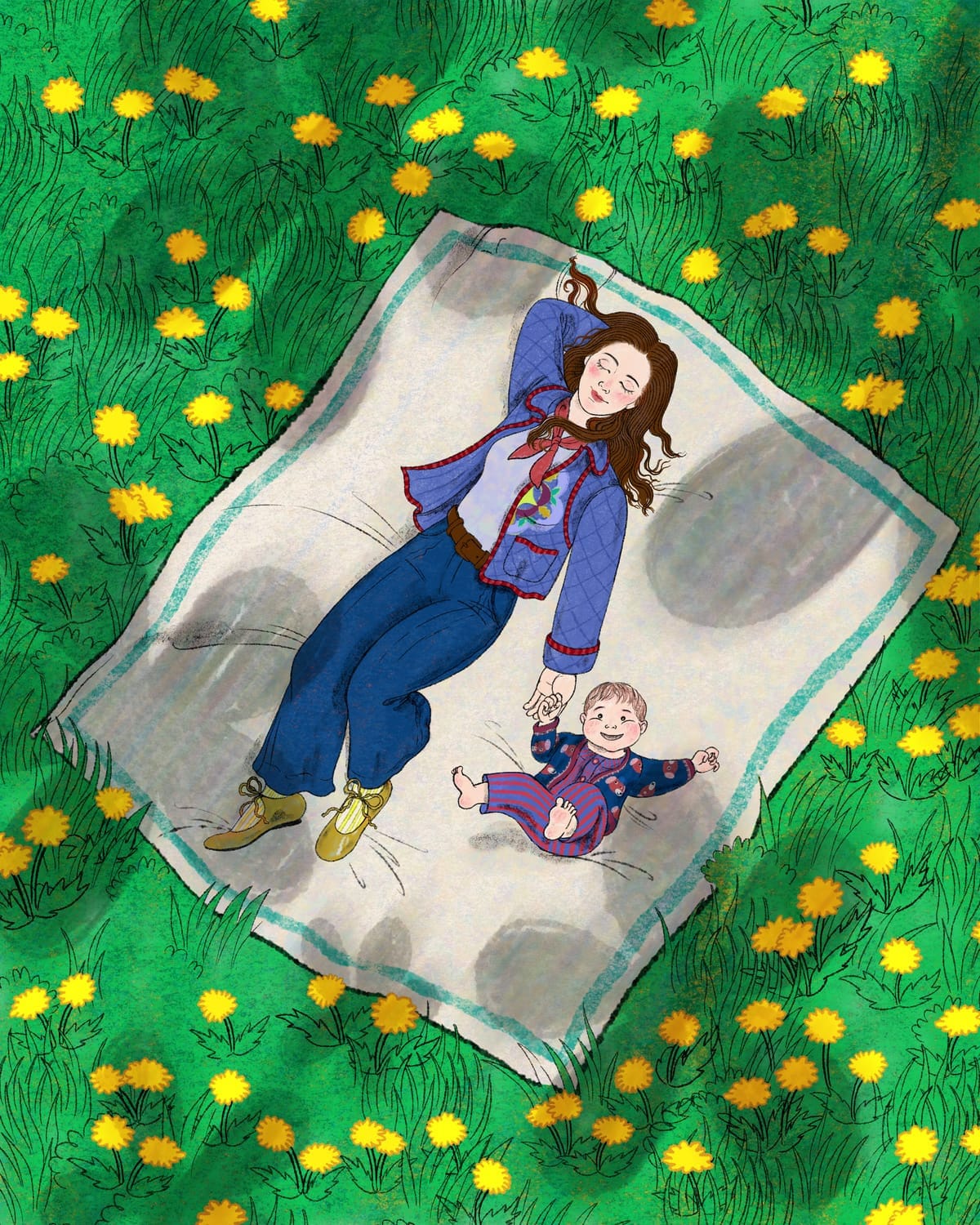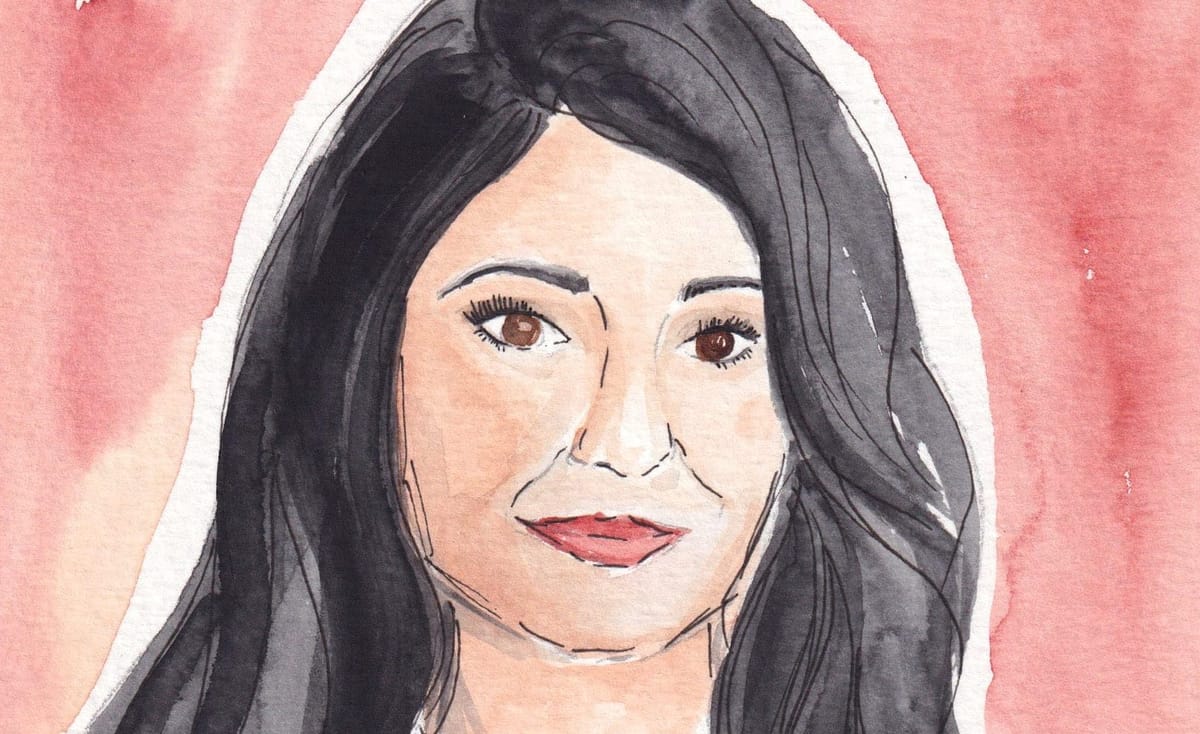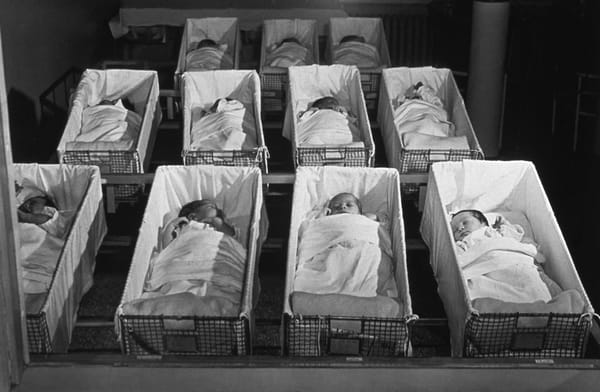Gentle Parenting is Gentle on Everyone But the Mothers Doing It
While gentle parenting places a high value on children’s feelings, it doesn’t have the same concerns about parents.

A friend of mine, Claire, is an elementary school teacher. Just before summer, she was preparing to chaperone her tween-age students on an overnight trip when she received an anxious call from a mom: “My child needs to be rocked to sleep,” said the mom. “Can you do that?”
Claire declined (obviously). Then her phone rang again. It was another mom. “My son likes to have his back scratched until he falls asleep,” she said. Then two more calls, both from moms who wanted Claire to contact them each night to let them know when their kids had fallen asleep.
You’d think Claire would be surprised by these requests. But she had received the same anxious directives from parents in prior years. “What on earth is going on with these moms?” I asked. “It’s gentle parenting,” sighed Claire.
‘Hang out. Be with.’
Even if you haven’t heard the term “gentle parenting,” you’ve probably seen it in action—perhaps in the supermarket—as a parent croons, “Oooh, those are big feelings” at a screaming toddler.
It is, in short, a form of intensive parenting that Parents Magazine describes as “parenting without blame, shame or punishment.” It came into its own during Covid-19 lockdowns, when parents had no one to turn to for advice—so they turned to social media, where accounts offered bite-sized chunks of advice. The method claims to be backed by neuroscience and aims to raise “emotionally well-rounded” kids; the parenting expert and author Sarah Ockwell-Smith is widely credited as the person who popularized it.
As a parent of two young kids, I can attest to its allure. Part of the pull is the scripts for tricky interactions, a sort of paint-by-numbers guide for exhausted parents which, if followed precisely, promise to transform tantrums into cozy moments of closeness.
Promises like these are, of course, eminently marketable: There are podcasts, ebooks, webinars and online courses (yes, I spent $120 on one and no, it did not make me a perfect parent). And while no one has put a price tag on the gentle parenting industrial complex, I’d imagine it’s making some people extremely rich.
This despite the fact that gentle parenting, like all so-called intensive (i.e., very hands-on) parenting methods, is about self-sacrifice. Once, when my eldest daughter was in her “sitting down in the middle of the road when annoyed” phase, I broadcast my woes to Twitter and was delighted to receive a response from the psychotherapist Philippa Perry, whose book, “The Book You Wish Your Parents Had Read,” is a gentle parenting bible. She said (rather charmingly): “Lift screaming toddler to safety out of middle of autobahn. Hang out. Be with.”
Which is fine if you like to spend a lot of time sitting on the side of the road with your screaming kid. But I had dinner to make and laundry to do and what about bedtime? When could I have my glass of wine? What about me?
I had dinner to make and laundry to do and what about bedtime? When could I have my glass of wine? What about me?
The thing is, while gentle parenting places a high value on children’s feelings, it doesn’t have the same concerns about parents. Gentle parents aren’t supposed to worry about work deadlines or finishing chores or even a missed glass of wine while they are rubbing their kids’ backs until they fall asleep. They don’t feel resentment when they cancel plans because their child decided not to sit in her car seat that day.
You only get 18 summers with your child, the gentle parenting mantra goes. Sacrifice your own needs to something higher. But here’s the part that’s less advertised: It’s almost always the moms who are expected to lie with their kids for the hours it takes them to fall asleep.
That’s why I’m calling gentle parenting out for what it actually is: deeply misogynistic.
More mothering, less self care
We often hear that today’s parents are in the midst of a mental health crisis. The U.S. Surgeon General acknowledged it in a 2024 health advisory. There have been various theories for why this is, but the Surgeon General, Vivek Murthy, blames demands from work and child care superseding quality time with one’s partner, leisure time and, not surprisingly, sleep.
While the number of hours the average full-time employee works has dropped slightly over the past few years, smartphones mean that we are always available to our employers; and work encroaching on family time is now normal. Meanwhile, the number of women in the workforce has surged in recent decades. In 1950, about one-third of women in the U.S. worked for pay; in July 2025, that figure was 57%.
Despite this, parenting has become significantly more intensive. Those cliches about 1970s kids roaming miles from home while this generation is glued to screens in their bedrooms are spot on. One analysis from The Economist found that the average mother spent 54 minutes a day caring for her children in 1965; that almost doubled to 104 minutes by 2012, the most recent (reliable) data I could find. And social scientists report that the trend has continued.
No wonder mothers, in particular, are in crisis.
Intensive parenting is A. Thing.
Let’s be clear: From Gina Ford to Tiger Mothers to Helicopter Parents, intensive parenting has been A Thing for several decades. As the sociologist Sharon Hays wrote in her study on mothering ideology in 1998, women are generally the ones expected to apply its principles. Under “intensive mothering ideology,” she asserted, parenting is “best completed by women as they are the ‘expert’ caregivers.”
A paper published in the journal Sex Roles summed up her view of intensive parenting: “A child’s needs should be placed above the mother’s and, given the extensive caregiving requirements, there should be limited opportunity for mothers to engage in activities outside of child-rearing, suggesting a mother’s needs should be completely fulfilled by their child.”
Well, at least she didn’t sugarcoat it.
Gentle parenting takes this idea and builds on it, by pressuring parents (read: mothers) to “model emotional regulation” (or repress their own feelings, depending on how you look at it).
Under gentle parenting rules, by design, kids occupy a lot of our emotional energy. You may wonder, what’s that doing to us?
A gentle parent, for instance, does not raise her voice at her kids, even when she’s seething; she does not shame or guilt-trip them, even when she told them not to climb that tree, and they climbed it anyway, and then they fell out and hurt themselves. If they don’t want to eat the food she has spent hours preparing, she respects their autonomy; they are “listening to their body.” If they throw a stapler at her head, that is them showing signs of dysregulation, with which she must cope without showing dysregulation herself. She does not blame them for hurting her, because that would make them responsible for her feelings (even though they are, clearly, responsible for that gash on her head and the fact that it hurts like hell). And of course, a gentle parent would never spank. (Though that’s been out of fashion for decades now.)
For moms, the effect of all this is a lot of worrying and self doubt. Am I doing things right?

Burnt out, self-doubting moms
Under gentle parenting rules, by design, kids occupy a lot of our emotional energy. You may wonder, what’s that doing to us?
Nothing good.
Alice Davidson, a professor of psychology at Rollins College in Florida, is one of the few academics to study gentle parenting and its effects on parents themselves. In 2024, she and Anne Pezalla, of Macalester College, published a paper entitled “An Exploration of the Meaning of Gentle Parenting.” Of the 100 parents they interviewed (84 of whom were women), about half identified as gentle parents. But more than one-third showed signs of “parenting uncertainty and burnout,” the study showed.
Maybe you can guess why. Almost 60% of the gentle parents Davidson and Pezalla interviewed said their biggest priority was not ensuring that their kids were healthy or pleasant members of society but that they—the parents—were adequately “regulating their own emotions.” Or: repressing their own emotions. Take it from me, an English person: Repressing one’s emotions takes a lot of emotional effort.
These mothers were “very earnest, sincere parents who are trying their best to do right by their children, to be loving and affectionate,” Davidson told me over a video call. But she found that in their quest to be Instagram-perfect parents, their own needs were being neglected, even the most basic ones.
“One person we talked to was like, I haven't had sex with my husband in however long, because I sleep on the floor in my kid's room,” Davidson relays. These moms were buckling under the pressure of “this…ubiquitous…myth, this master narrative of what parenting perfection looks like,” she says.
This is a theme Julianne Boutaleb, a consultant perinatal psychologist (one who specializes in the needs of women during pregnancy and post-partum), is seeing more of: “Women feel that the parenting is all on them, even if a partner is really good at caring for the baby,” she says. “If I’m not in the driver’s seat, I’m letting the side down.”
It also means that mothers are “really fixated on this fear of getting it wrong, that they’re somehow going to damage their baby,” says Boutaleb.
And, surprise surprise, perfectionism in parenting has been correlated with parenting burnout among mothers: In 2024, a paper in the journal Frontiers in Psychology showed that trying to be perfect had “severe costs for women’s family and work outcomes.”

The kids are not alright
The big surprise though is that under gentle parenting, kids aren’t particularly thriving, either. Many of Davidson’s students who have come of age during one of the previous waves of intensive parenting show a worrying lack of independence, says Davidson. “Some of them text and talk to their parents all the time. In some ways that's great but it’s also important that children have opportunities to try things out on their own and take healthy risks so they can be resilient and learn that they can do hard things.”
Indeed, various studies, including one published in the Journal of Pediatrics in 2023, and recent work by the anti-screentime social psychologist Jonathan Haidt, have drawn links between a fall in independence, further exacerbated by smartphones, and a rise in mental health problems among young people.
Boutaleb points out that even babies don’t want their moms all the time. “Babies need to be frustrated sometimes. If we're constantly imagining our baby's needs before they even know they have a need, they don't grow and develop.”
And maybe that’s taking things too far. Even some advocates of gentle parenting seem a bit uncomfortable with where things have ended up. In a recent New Statesman article, Ockwell-Smith, whose books on the subject have been translated into 30 languages, lamented that “people are going on TikTok with no training whatsoever and doing things that I find very permissive and weird.”
Meanwhile Perry, the psychotherapist and author who sent such a generous response to me on Twitter, says she regularly witnesses parents “trying very, very hard to be nice beyond their limits.”
“I’m all for feeling with the children—but I’m not for sacrificing myself to the extent that I start resenting them because I’ve not said no to anything.”

Bringing it home
Truthfully, I tried gentle parenting for about 18 months before I abandoned it, when it became clear that without time to myself, I would become a bad (alright—a worse) mom. My husband and I retain some of its principles—my kids never have to hug anyone they don’t want to, for example—but I’ve re-embraced my parenting instincts. Sometimes (often, actually) I yell.
And though my eldest sometimes screams “I HATE YOU!” and slams the door (something which, yes, she has probably learned from me), I neither feel much guilt when she does it, nor punish her for those “big feelings.” It’s normal, I think, to sometimes hate your parents. And to slam doors, too.
While I was writing this, my 6-year-old wandered by. I told her to go away because I was working, then thought the better of it and asked her what she thought of my parenting. She poked some keys on my laptop thoughtfully, then pulled a lofty face, enjoying her moment of power. She extended a hand, as her teacher, who is French, had taught her to do, and waved it from side to side. “Comme ci, comme ça,” she said, then translated with a Gallic shrug: “It’s fine.”
Fine, I thought. I’m OK with that.
Liked this story? Sign up to start getting The Persistent's newsletter.








